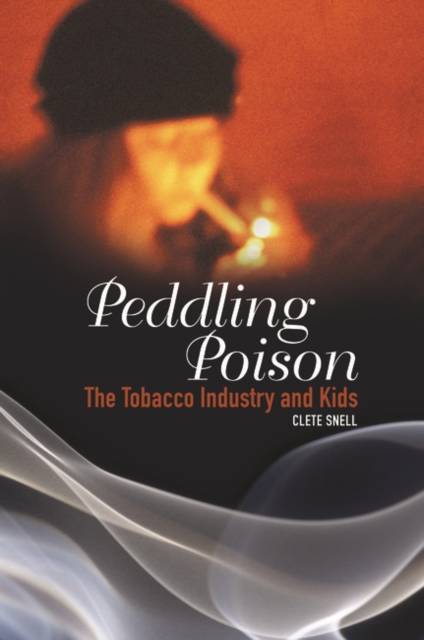
- Retrait gratuit dans votre magasin Club
- 7.000.000 titres dans notre catalogue
- Payer en toute sécurité
- Toujours un magasin près de chez vous
- Retrait gratuit dans votre magasin Club
- 7.000.000 titres dans notre catalogue
- Payer en toute sécurité
- Toujours un magasin près de chez vous
Description
The social acceptance of tobacco use obscures the fact that it is the single greatest preventable cause of death in the U.S., and approximately 80% of those who use tobacco products began using them before the age of 18. Indeed, tobacco companies in the past routinely targeted youth in their marketing and advertising, hoping to hook kids young and keep them with their original brand. Snell explores the tobacco industry's campaign to attract youth smokers and provides an overview of the FDA's investigation of the tobacco industry and how those investigations revealed the industry's deceptions and their specific intent to target youth. As a result, many anti-smoking advocacy groups and youth-led programs have sprung up to educate other youths about the deadly nature of tobacco addiction and the industry's marketing strategies. Parents, teens, teachers, and community and policy leaders here find an engaging, thoughtful, and informative discussion of a problem that has vexed this country for decades.
As a result of the Master Settlement with the tobacco industry, many states have developed comprehensive programs that have resulted in a substantial decline in youth tobacco use. While national efforts at tobacco regulation have largely failed, local tobacco control efforts have mostly been successful. Snell shows that the future of youth tobacco policy depends on the continued funding of tobacco prevention programs at the state and local level and illustrates that there is considerable evidence that the tobacco industry is shifting its marketing approach to minority populations and developing nations.Spécifications
Parties prenantes
- Auteur(s) :
- Editeur:
Contenu
- Nombre de pages :
- 188
- Langue:
- Anglais
- Collection :
Caractéristiques
- EAN:
- 9780275982393
- Date de parution :
- 30-07-05
- Format:
- Livre relié
- Format numérique:
- Genaaid
- Dimensions :
- 163 mm x 244 mm
- Poids :
- 439 g







